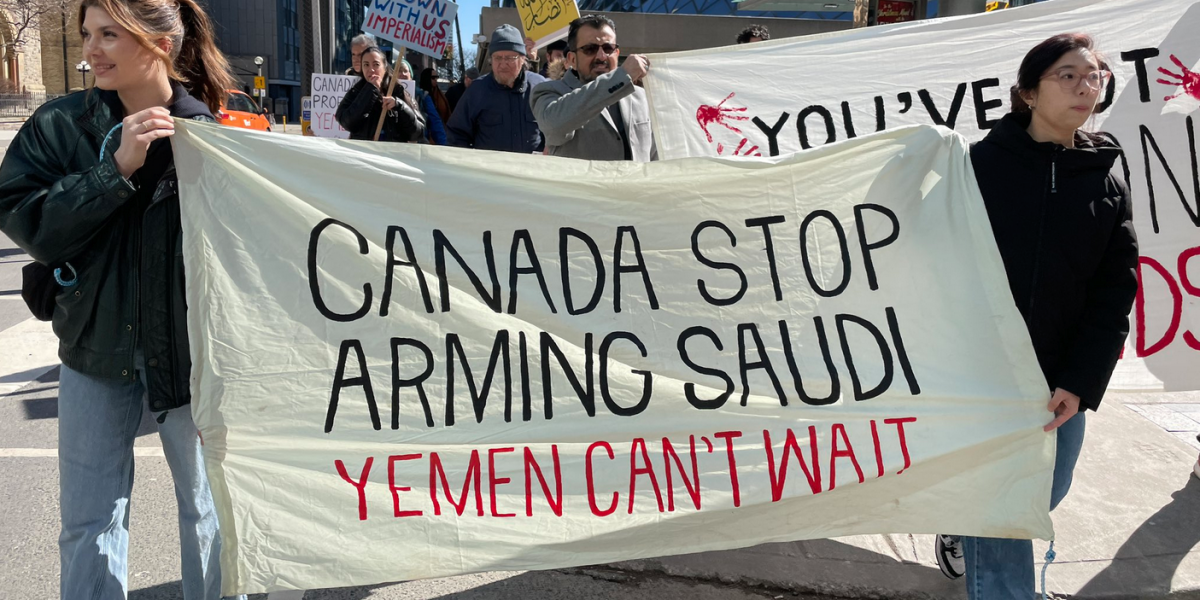This past March 25 to 27, protests were held across Canada to mark eight years of the Saudi-led intervention in the war in Yemen. Rallies, marches and solidarity actions were held in six cities across the country in objection to Canada’s profiting from the war.
The war in Yemen has created one of the largest humanitarian crises in the world: the UN estimates 21.6 million people in Yemen will need humanitarian assistance and protection in 2023, which is about three-quarters of the population. Canada has fueled the war through billions of dollars in arms sales to Saudi Arabia. This money has also helped in the complicit silence of the international political community surrounding the war.
The conflict started as a result of a power transition that happened during the Arab Spring in 2011 between the President of Yemen, Ali Abdullah Saleh, and his deputy, Abdrabbuh Mansour Hadi. What followed was a civil war between the government and a group known as the Houthis who took advantage of the new government’s fragility and seized control of Saada province, taking the nation’s capital Sanaa. Hadi was forced to flee in March 2015, causing neighbouring Saudi Arabia and a coalition of other Arab states such as the United Arab Emirates (UAE), to invade Yemen, driving the Houthis out of south Yemen though not out of the north of the country or Sanaa. Since then the war has continued, with tens of thousands of civilians killed, many more injured and 80 per cent of the population needing humanitarian aid.
Despite the severity of the situation the international community continues to send arms to Saudi Arabia: over $8 billion since 2015. The UN Human Rights Council has twice pointed to Canada among the countries adding to the war in Yemen, and Canada ranks 16th in arms exports in the world according to the Stockholm International Peace Research Institute’s (SIPRI) latest report.
In the absence of any peaceful foreign policy in the Middle East by other nations such as Canada, China has stepped in as a peacemaker. They initiated cease-fire talks that made concessions from Saudi Arabia possible, which include Houthi demands such as opening both the capital city of Sanaa to flights and a major port that will allow vital aid supplies to reach the country. Also being discussed, is access to the government’s currency to stabilize the economy. This is the kind of work Canada should be doing, enabling peace through dialogue not through sending more weapons.
This is made even more astonishing given the lack of even a mention of funding for international humanitarian aid in the recent budget for 2023 that the Trudeau government recently released. Though one thing that is heavily financed in the 2023 budget is the military, showing a commitment by the government to fuel war instead of peace. This weapons transfer must stop if Canada is to be a participant in stopping the war, and an active agent for peace.
For updates on future actions visit https://peaceandjusticenetwork.ca
Did you like this article? Help us produce more like it by donating $1, $2, or $5. Donate

